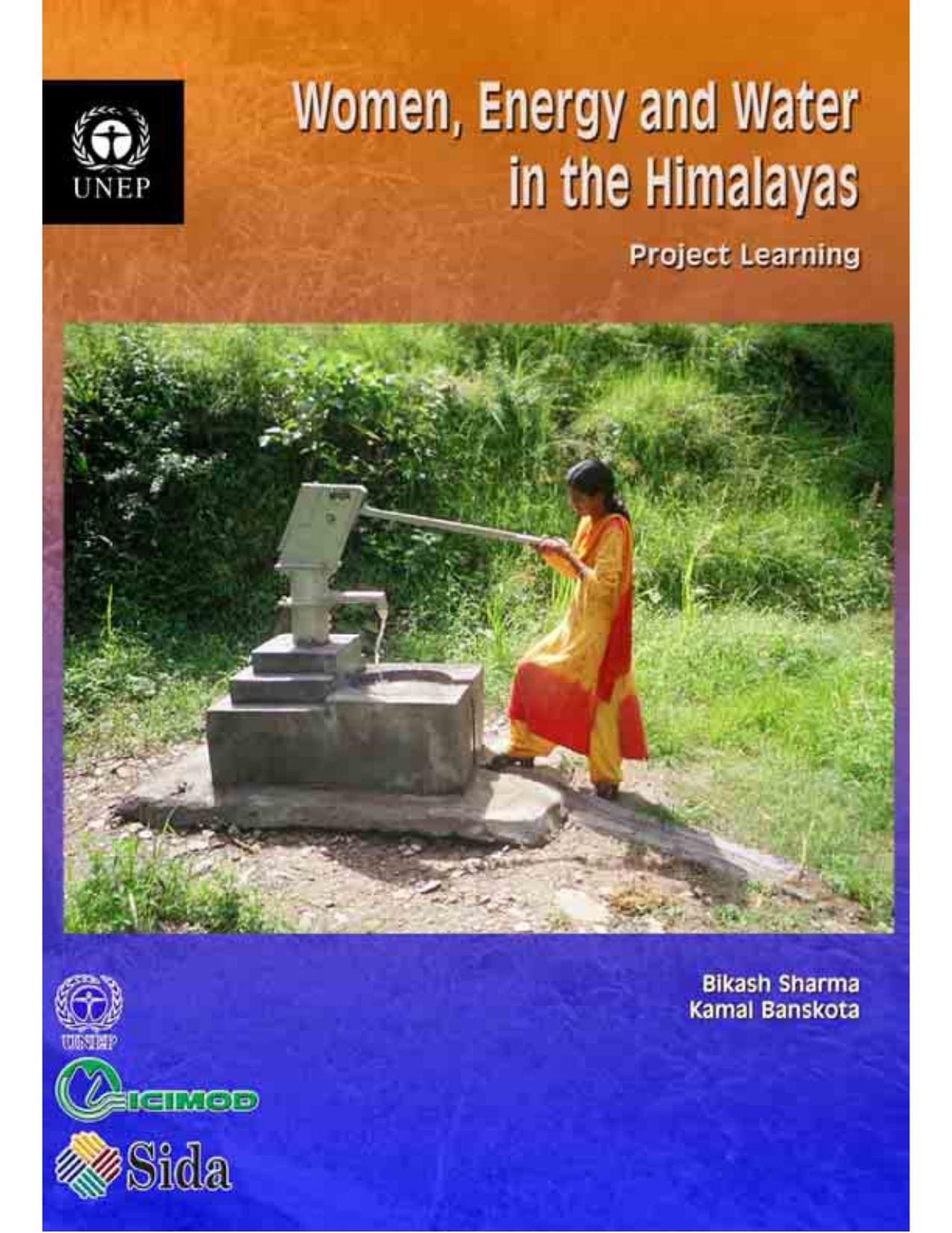
The three publications and DVD Film on Women, Energy and Water in the Himalayas Policy Guidelines, Project Learning, and Training of Trainers Manual . encapsulate the experiences and lessons from a recent project on 'Incorporating the Needs and Roles of Women in Water and Energy Management in Rural Areas in South Asia'. The UNEP and ICIMOD project was supported by the Swedish International Development Co-operation Agency (SIDA) and carried out by local partners in selected sites in Bhutan, India, and Nepal. The project focused on building women's capacity to organise themselves, to identify and prioritise their water and energy needs, to introduce technologies to reduce the time and effort involved in water and energy management, and to use the time saved in income-generating activities. 'Project Learning' summarises the rationale and approach used in the project, the implementation process, and the impacts in the project areas. 'Policy Guidelines' highlights the importance of bringing the gender perspective to water and energy policy analysis and design and describes a conceptual framework for developing gender sensitive water and energy policies. The 'ToT Manual' provides learning tools for carrying out gender analysis, mobilising communities, identifying prioritised needs and solutions, and designing and using gender sensitive participatory action planning in water and energy and other related fields. The film tells the story of the project and brings to life the problems outlined, and the technologies and solutions described in the other publications. What was striking was that a few simple technologies in the water and energy sectors had a substantial impact on the lives of the women even within the short time frame of the project. A woman centric approach focusing on the expressed needs of women in both energy and water can make a difference in reducing poverty and meeting the Millennium Development Goals. It is a powerful entry point for engendering development and empowering women. The publications will be useful to policy makers, planners, and development specialists in national institutions, NGOs, and donor agencies engaged in engendering development and empowering women, especially in mountain areas. Policy makers and rural development practitioners can pick from these experiences those that are useful or suitable to their particular needs for replication and upscaling.